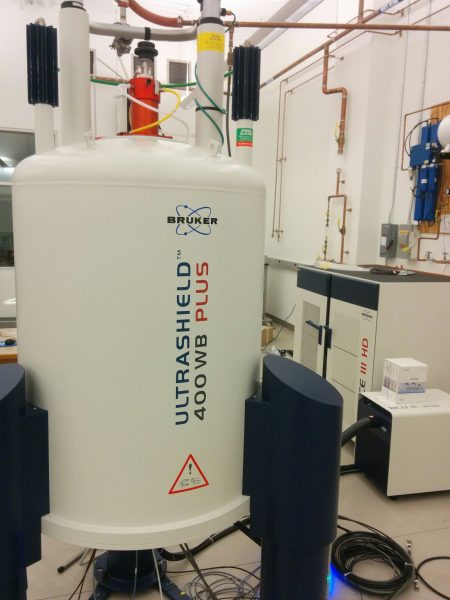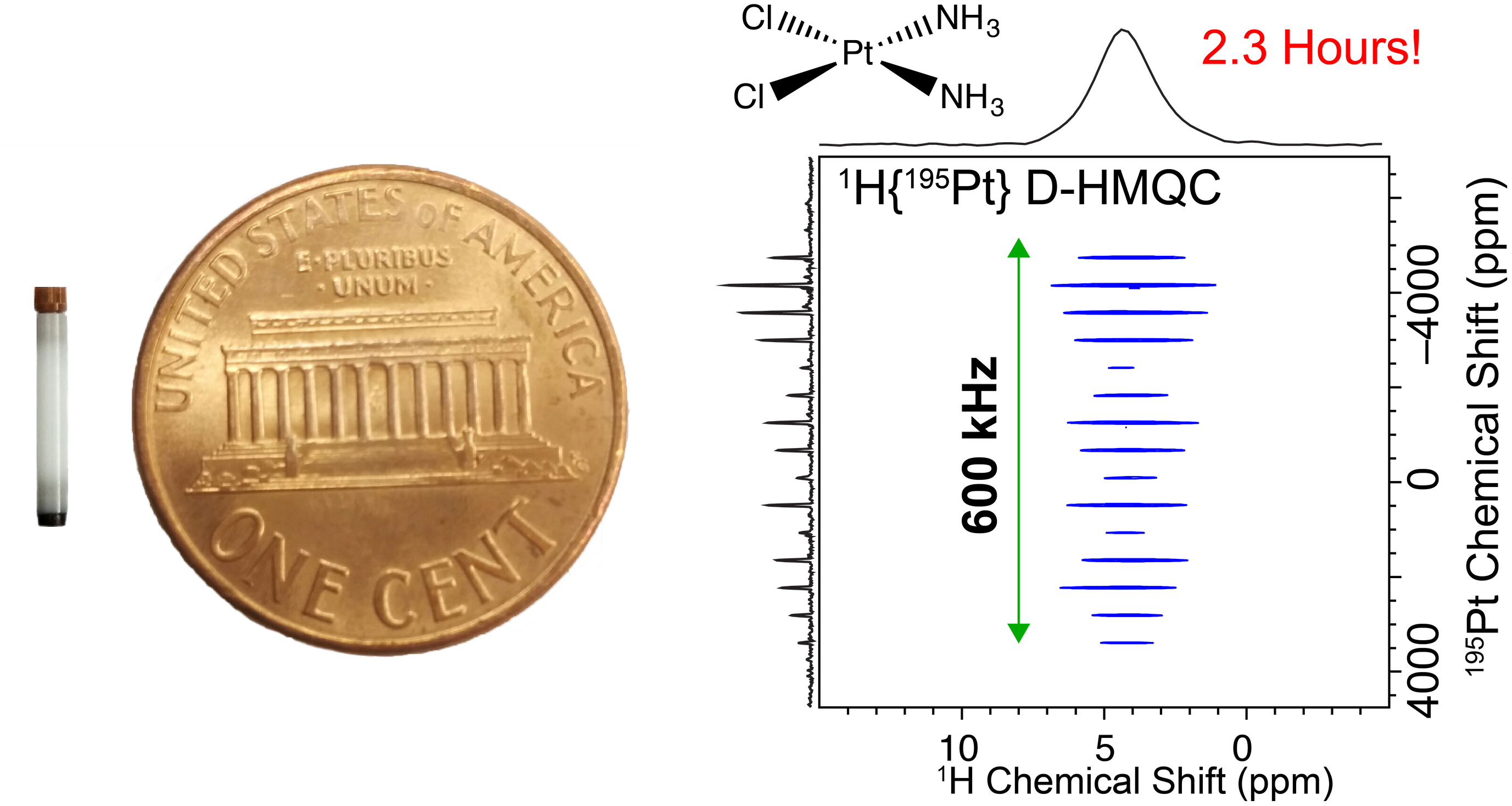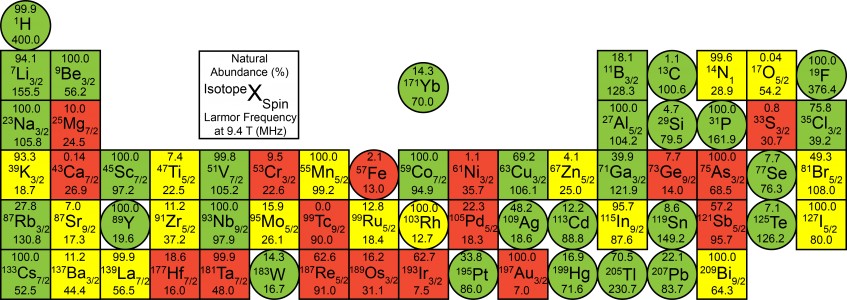The goal of the Rossini Group is to develop and apply new structural tools for the atomic level characterization of inorganic materials, pharmaceuticals, nanoparticles, and other functional materials that are challenging to characterize with conventional techniques. There are several different research areas that are active in our group within these themes:
Development and Application of DNP Enhanced Solid-State NMR

We develop and apply dynamic nuclear polarization (DNP) solid-state NMR spectroscopy. In a DNP experiment the high spin polarization of unpaired electrons is transferred to magnetic nuclei. DNP represents a revolution for NMR spectroscopy since it can enhance the sensitivity of NMR experiments by several orders of magnitude. This enables NMR experiments previously considered impossible or infeasible and allows application of NMR spectroscopy to previously intractable systems. For example, we are employing DNP enhanced solid-state NMR to improve the characterization of surfaces/interfaces of inorganic materials, observe dilute species and active sites, characterize the solid phases (polymorphs) of pharmaceuticals and to enable the fast acquisition of NMR spectra of unreceptive and challenging isotopes (e.g., 2H, 14N, 15N, etc.). However, there is substantial room for the development of DNP by devising novel methods to dope the sample with the radicals, improving radical polarizing agents, extending DNP to new classes of materials, etc. In collaboration with the groups of Dr. Frederic Perras and Dr. Takeshi Kobayashi, we use a 400 MHz/263 GHz DNP solid-state NMR spectrometer located in the US DOE Ames National Laboratory.
Development and Application of Fast MAS and Proton Detection
The solid-state NMR community has shown that fast MAS can be combined with proton detection to enhance the sensitivity of NMR experiments by orders of magnitude. However, these techniques are normally performed on commonly encountered spin-1/2 nuclei such as 13C, 15N and 29Si. We are developing methods which will enable application of these techniques to unreceptive and exotic nuclei. For example, we have recently shown how proton detection and fast MAS can be applied to rapidly obtain high resolution wideline solid-state NMR spectra of heavy spin-1/2 nuclei, such as 195Pt. We have also shown that fast MAS and proton detection can be applied to enhance the sensitivity of solid-state NMR experiments with half-integer quadrupolar nuclei. Proton detection and fast MAS will open up the elements in the periodic table to NMR investigations and allow novel structural information to be obtained.


Materials Characterization
We are interested in applying DNP and fast MAS methods to perform the detailed atomic level characterization of inorganic materials, nanomaterials, heterogeneous catalysts and other functional materials. In particular, DNP and proton detected fast MAS methods enable the selective characterization of the surfaces and interfaces of materials. We also exploit the NMR spectroscopy of exotic and uncommon NMR active nuclei to obtain structural information. Structural investigations of materials are supported by quantum chemical calculations of structure and NMR properties.
Characterization of Pharmaceuticals
We have previously demonstrated that DNP enhanced NMR spectroscopy can be used to enhance the sensitivity of solid-state NMR experiments on pure and formulated pharmaceuticals by several orders of magnitude. We are currently investigating how to apply DNP and fast MAS to improve structural characterization and detection of active pharmaceutical ingredients in both pure and dosage forms.
Student Training
Students and researchers in my group will primarily work on the applications and/or development of NMR techniques. However, they also gain experience in other characterization and modeling techniques such as EPR spectroscopy, quantum chemical calculations/computational chemistry, X-ray diffraction, etc. Students also perform basic syntheses and sample preparations.
